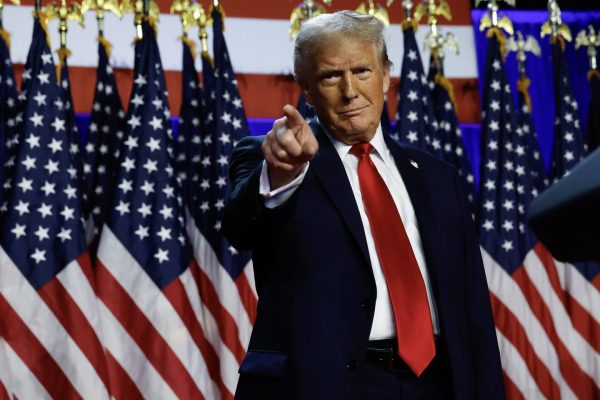The importance of voting in elections
Opinion
The significance placed on the citizens’ right to vote within the United States has been a lesson preached to each new generation by their peers, family, professors, and politicians. The importance of voting–often targeted toward youth–can become convoluted when they are repeated time and time again without the necessary context.
The true purpose behind voting begins to mean less and less when people feel forced to participate for the “future of the nation.”
To truly understand how people’s ability to vote impacts the democracy they live within, one should look back to the first democracy, which was invented in Ancient Greece.
During the beginning of the 5th century B.C.E. (more specifically, during or around the year of 508 B.C.E.), the Greek city of Athens was built. Little knew how the events that took place within this city’s walls would impact the future of humanity. The city was founded on the principles of Athena, the Goddess of war, handicraft and practical reason, and with her guidance, the inhabitants of Athens created the form of government known as demos kratos, which translates directly to “people power.”
In the Athenian democracy, the citizens participated in all processes within their government through a direct democracy. They had the ability to make decisions by which they lived by and also actively participated and served within the organizations, allowing them to control each aspect of the political process.
This belief that the people have the power to control and influence the politics of their community was picked up by other nations around the world.
When the founding fathers of the United States met to create the U.S. constitution, they utilized these similar beliefs and created the foundation of a modern democracy whereas “we the people” have the ability to control and directly influence our local, state and federal governments.
However, “we the people,” unlike the citizens of Athens, do not directly impact laws and regulations that are put into place; instead we elect those who make those decisions for us.
This indirect or “representative” democracy can be seen in both the presidential and state elections, just like the one that occurred within Connecticut and the majority of other U.S. states on Nov. 8.
The state of Connecticut elected incumbent Governor Ned Lamont to serve as their representative on the state level, and placed their trust in him to make the correct decisions on behalf of the state.
Electing a representative, whether it is for the House of Representatives or the Senate, can have consequential impacts on decisions that may hold an important spot in the hearts of many.
When those ad campaigns once again make their return and force their way into each American household, every citizen should educate themselves on those running to be their representatives. For these candidates to best serve the majority opinion and the ideals of the state’s population, those citizens must utilize their ability to vote. Remember, when it comes to making a difference, in the words of President Lincoln, “the ballot is stronger than the bullet.”




